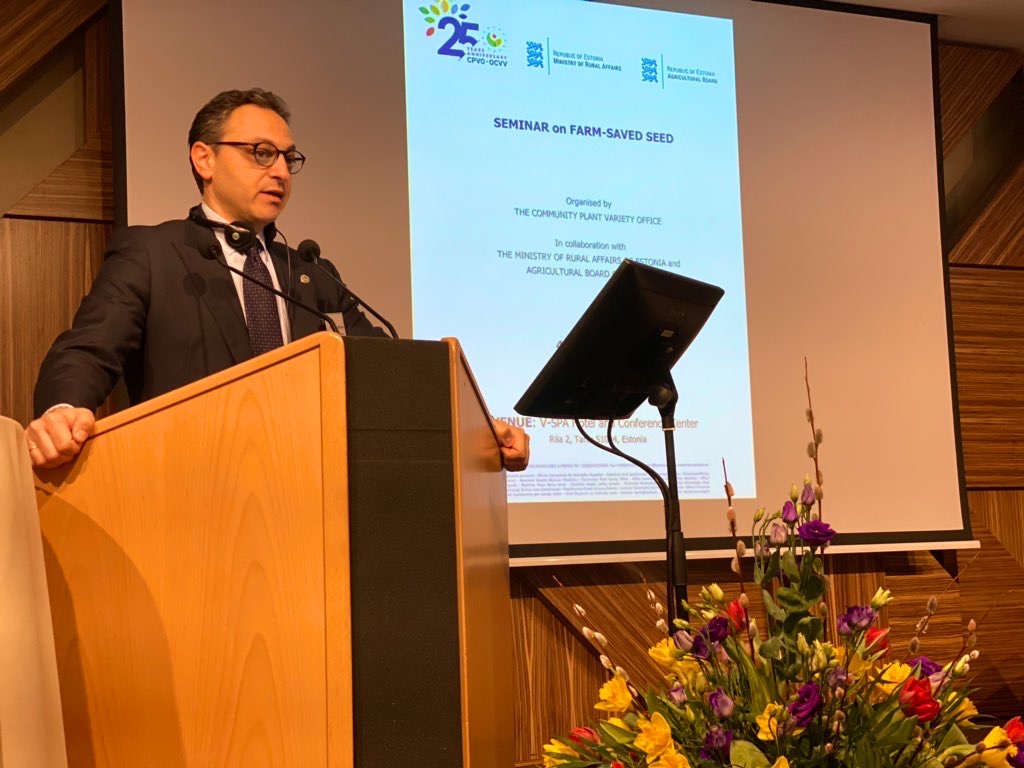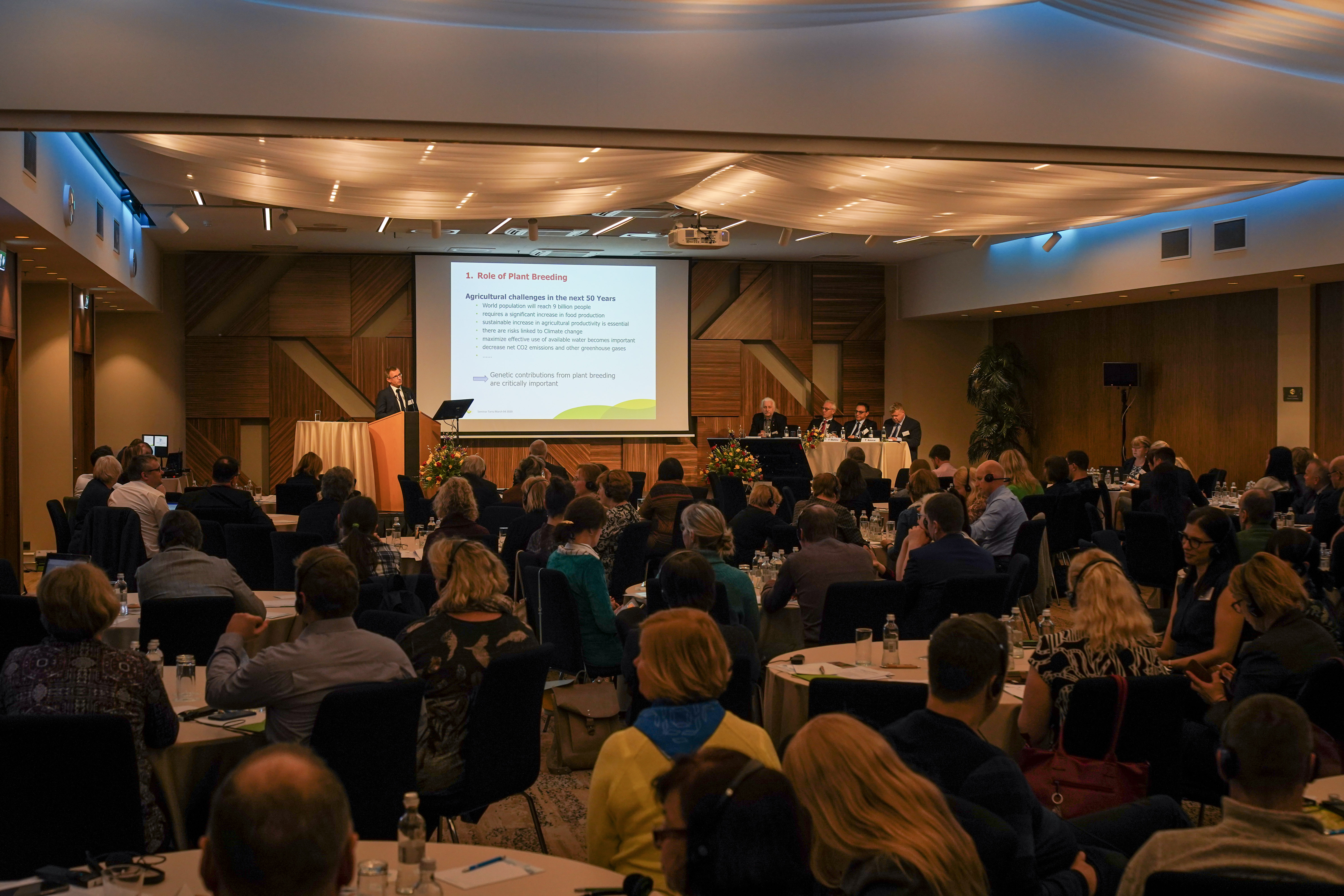Clarifying the functioning of the Farm Saved Seed system in Estonia & the neighbouring countries
On Wednesday the 4th of March, the Community Plant Variety Office (CPVO) organised a seminar dedicated to Farm Saved Seed (FSS), and in particular the functioning of the FSS system in Estonia and the neighbouring countries.
The seminar took place in Tartu, Estonia, and was organised in collaboration with the Estonian Ministry of Rural Affairs and the Estonian Agricultural Board with the aim to discuss the current practices in the Baltic region and inform farmers about the practicalities and obligations of the Farm-Saved-Seed mechanism.
The use of FSS is widely spread among farmers in Estonia and it looks like plant breeders have difficulties to access accurate information on the scale of the varieties and the amount of seeds from protected varieties being saved. It was therefore important to give the opportunity to farmers and plant breeders to receive information and exchange views on the FSS concept.
“Farm Saved Seed is a legal provision enshrined in the basic regulation on Community Plant Variety Rights and the Implementing Rules on the Agricultural Exemption”, said Francesco Mattina, Vice-President of the Community Plant Variety Office (CPVO).
“To be workable and serve its purpose, the FSS mechanism requires trust and mutual understanding from both the farming community and the breeders, and it is important to raise awareness and clarify how FSS works”, he added.
“Even though practices on FSS differ across Europe, it is noticeable that FSS works well whenever there is clarity on the FSS mechanism and when its benefits are well understood: on the one hand, farmers get more value for using varieties which are of better yield, performance and quality; on the other hand, breeders get equitable remuneration for their innovation”, he concluded.

FSS was conceived to safeguard agricultural production and to guarantee a fair remuneration to plant breeders who have invested in developing new plant varieties. Farmers may use seeds that have been saved from protected varieties of certain species grown on their own holding for re-sowing on their own holding.
Plant breeders’ rights give the breeders legal rights over the plant varieties they have developed and allow them to charge royalties for using these protected varieties. Farmers must declare their use of FSS of protected varieties and pay to the title holders an equitable remuneration for their use.
Clarity and cooperation between farmers and breeders on the implementation of the right for information is to be encouraged with the view to exercise compliance with the FSS mechanism and consider litigation as a last resort only.
From the CPVO experience, there is a higher rate of compliance and acceptance of the value of plant breeding innovation by the farmers in countries where FSS agreements between farmer organisations and breeders associations have been negotiated and established.
In practical terms, the development of new plant varieties of high quality is the result of costly R&D investments aiming at improving the yield, performance and quality of agricultural crops. Breeding innovation is constantly needed to fit with today’s global demand and challenges, such as a growing demography and changing climatic conditions leading to the loss of arable land surface and a more sustainable use of water.
“The CPVO’s role is to ensure usefulness and efficiency of the Community Plant Variety Right (CPVR) system, bearing in mind that a strong Plant Variety Protection system creates an incentive for breeders to develop better varieties from which farmers can profit. This leads to a win-win situation” said Dirk Theobald, CPVO’ Senior Advisor

Background information
About the seminar: the agenda and presentations used during the seminar can be consulted on the CPVO seminar webpage.
About Farm Saved Seed: the legal framework for Farm Saved Seed in the European Union are set in the Council Regulation No 2100/94 on Community Plant Variety Rights (article 14) and the Commission Regulation No 1768/95 detailing the Implementing Rules on the Agricultural Exemption. See here : https://cpvo.europa.eu/en/about-us/law-and-practice/legislation-in-force
If you have any questions, feel free to contact: Lionel Sola, CPVO’s Communication Officer, Sola [at] cpvo [dot] europa [dot] eu, +33.2.41.25.64.75
